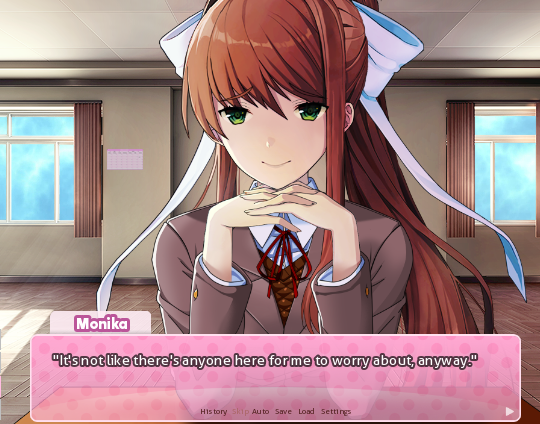


New players who are getting into Doki Doki Literature Club should keep the following tips in mind so that they don't get caught off-guard with some of the more obtuse elements in these games. Plus! is filled to the brim with new content that will definitely compel more people to try this phenomenal title out.


Now that youre a club member, you can help me make that dream come true in this cute gameEvery day is full of chit-chat and fun activities with all of my adorable and unique club members:Sayori, the youthful bundle of sunshine who. Through Doki Doki Literature Club Plus!, which is available on PS5, PS4, Xbox Series X/S, Xbox One, and Nintendo Switch, players can try out the most polished version of this game. Doki Doki Literature Club - Hi, Monika hereWelcome to the Literature Club Its always been a dream of mine to make something special out of the things I love. Related: Doki Doki Literature Club Plus: How to Get All Pictures However, Doki Doki Literature Club is an exception to this norm, as it features a mind-bending tale and a clever deconstruction of genre tropes presented in an extremely satisfying way. So, it's easy to see why many gamers don't really bother trying out new entries to this genre unless they are already invested in the idea of playing visual novels from the get-go. However, the game has moments of happiness, moments where Sayori is able to spend time with her friends.The visual novel genre is a pretty safe and nice genre that serves up great stories and amazing artwork without integrating a ton of gameplay into the mix. It’s easy to believe that the game gets hung up on her negative feelings - if you’re not used to the slow, methodical pace of most visual novels, it might feel like the game is almost bludgeoning you with the fact of her depression. It perfectly evokes how one small mistake can make one feel worthless. Each time she does, she calls herself an idiot, and thinks people gently correcting her is them believing her to be stupid. There’s a part in the game where she gets confused over the word retribution, and misuses it twice. The simplicity in how she speaks makes the message that much more relatable, too. It not only emphasizes just what exactly it is she’s feeling and how she’s responding, but also the “loop” one can get into when they suffer from depression. The repetitive dialogue that runs through Sayori’s brain, accusing her of being a failure, that she should just sleep forever, that all she does is make others sad by failing, is a disturbingly accurate representation of how one’s brain works when they’re depressed.


 0 kommentar(er)
0 kommentar(er)
